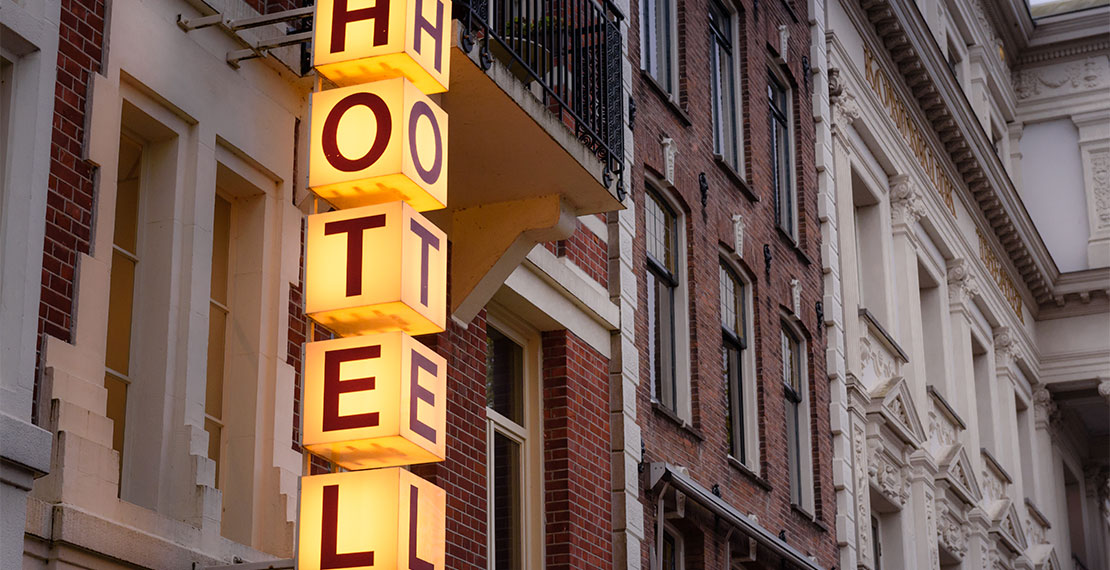New York City’s severe shortage of affordable rental housing is coinciding with a pandemic-fueled vacancy crisis in commercial buildings, including hotels. Several legislative proposals have been made to respond to these crises by allowing certain commercial buildings in parts of Manhattan to be converted to use as affordable residential rental properties. Writing for The Daily News, Babak Ghafarzade examines these proposals and their likelihood of passage.
(This op-ed was originally published in The Daily News)
The COVID-19 pandemic has forced all of us to reimagine where and how we live and work. The sudden changes were especially pronounced in New York City’s rental markets. As we reemerge from lockdown, our elected representatives have a unique opportunity to enact housing policies that benefit all New Yorkers.
Rents in the city can be notoriously unaffordable. Even before the pandemic, nearly half the city’s households were rent-burdened, meaning they dedicated more than 30% of their incomes toward rent. And these households were more likely to lose wages during the lockdown, making them even more susceptible to losing their homes and jobs.
The shortage of affordable housing is in contrast to a glut of vacant commercial space. Seemingly overnight last March, the city’s normally bustling office towers and hotels were left deserted. Some may never look the same again.
Recognizing the symmetry in these two problems, policymakers in Albany have put forward different proposals to turn vacant commercial buildings into affordable housing.
Gov. Cuomo’s 2022 budget includes a draft bill that, as revised in February, would provide a two-year window to convert some hotels and office buildings into apartments. Hotels with fewer than 150 rooms and located below Chambers St., above 100th St., and outside Manhattan would qualify, as would older or distressed office buildings in Manhattan between 14th St. and 60th St. and between 9th Ave. and Park Ave. Owners would have to either set aside at least 25% of their units as affordable housing or contribute money to an affordable-housing fund.
The Housing Our Neighbors with Dignity Act, Senate Bill S5257A, was introduced by Sen. Mike Gianaris and co-sponsored by Sens. Brian Kavanaugh, Zellnor Myrie, Gustavo Rivera and Julia Salazar. If passed, the law would authorize the state to purchase financially distressed or for-sale hotels and commercial offices statewide, convert them to apartments and sell or lease them to approved nonprofits for use as affordable housing. Half of each converted building’s units would be reserved for families experiencing homelessness. The other half would go to low-income tenants.
Both plans align with the Biden administration’s policy goal of eliminating exclusionary zoning rules and retrofitting commercial buildings to spur residential development and ensure that working families can access affordable housing.
Cuomo’s proposal has support from the real-estate industry but faces opposition from legislators and housing advocates skeptical of the likelihood it will ensure true affordability. If the law guaranteed that one-quarter of every converted building’s units would be affordable under the city’s rubric, that would be significant. But owners may opt out of housing any low-income tenants by instead paying into an affordable-housing fund.
It is not clear what practical benefit this loophole would provide, as for once funding is not the main issue. The state and federal governments have appropriated $100 million and $5 billion, respectively, for conversion programs. Congress has also allocated $12.6 billion in direct aid to the state and $6 billion to the city. Lawmakers expect to increase the state’s appropriations and tap into these federal funds once final legislation is enacted.
Cuomo’s plan suffers from two additional weaknesses: a slew of carveouts and a short conversion window. The conversion program would not cover any large hotels or any hotels whatsoever between Tribeca and the Upper East Side. As for office buildings, only those in core Manhattan would be covered. As a further limitation, all conversions must take place by the end of 2024. With all of these constraints, the law is unlikely to be effective even if it is enacted.
Gianaris’s proposal stands a better chance of success given its simplicity and broad support among lawmakers, advocates and the hotel-workers’ union. The state would simply purchase commercial buildings that are financially distressed or for sale and convert them into affordable housing. To address the real-estate industry’s concern that Gianaris’s bill would exclude the private sector from conversions, lawmakers could permit approved companies to convert and run converted buildings with the same affordability requirements.
Although reasonable minds may disagree about the appropriate concentration of low-income residents or the formerly homeless in a single building, few can dispute that the proposed transactions would benefit all parties involved. Owners would receive a fair price for properties they no longer want. The state would spur the economic activity necessary to convert the buildings and operate them as apartments. Low-income and formerly homeless families would gain a place to live. And the city would turn unused, empty shells into vibrant neighborhoods.
Everyone agrees on the need to convert unused commercial space into much-needed affordable housing. The current legislative session ends on June 10. Hopefully, lawmakers will rise to this unprecedented occasion and enact legislation that invests in the future of housing in the city and across the state.


